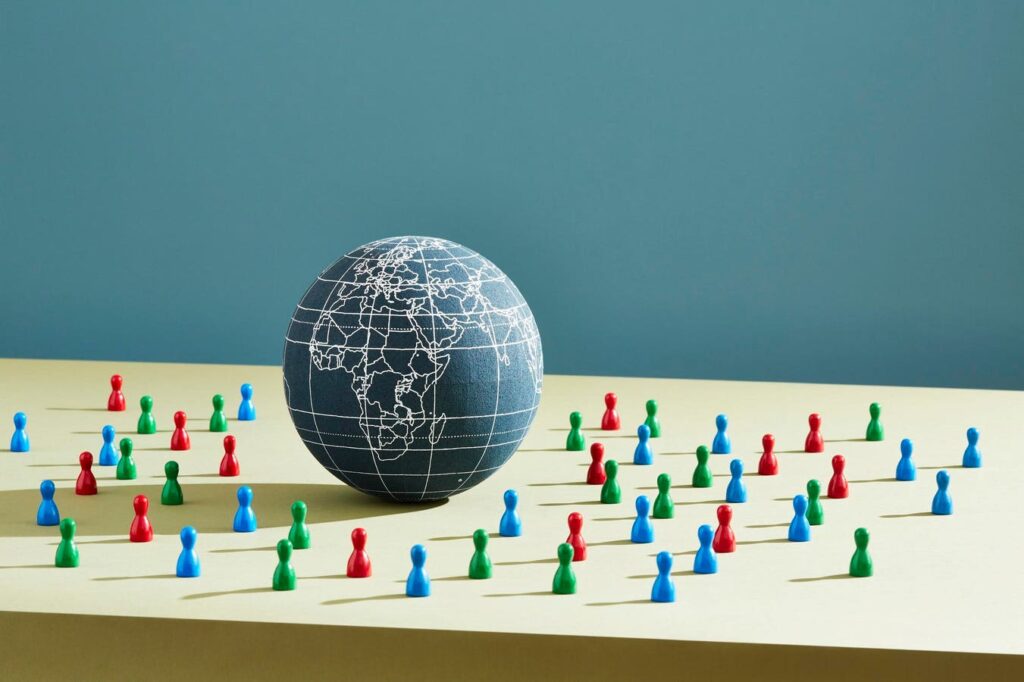By Kendra MacDonald, CEO of Canada’s Ocean Supercluster.
My father went to sea with the Royal Canadian Navy. He believed deeply in the value of seeing the world—and he passed that belief on to me. He often said that you have no right to judge others if you haven’t met them, and once you do, you come to understand just how much we share. Despite differences in language, geography or politics, we are all human. We all face challenges, carry hopes and want better futures for the people we care about.
Today, in a world still healing from a global pandemic and grappling with economic, political and climate uncertainty, the temptation to turn inward is strong. It’s understandable. As a proud Canadian, I believe deeply in the importance of strengthening our country and economy. It’s the reason I do the work I do. But I also believe that we cannot build a resilient and thriving future by closing ourselves off. Canada is a trading nation, a coastal nation and a global innovation player—and we are stronger when our international relationships are strong.
Here’s why I believe staying globally minded matters now more than ever:
We’re more connected than we think.
My daughter has access to music, cultures and perspectives from every corner of the globe at her fingertips—something unimaginable just a generation ago. While this access is not universal, it is expanding. How do we turn this exposure into empathy and understanding? How do we learn from others instead of fearing what’s unfamiliar?
We must navigate an era of misinformation.
We are constantly bombarded with half-truths and content designed to divide. As leaders, partners and citizens, we need to ask better questions. Are we building our views of markets or nations based on accurate, firsthand knowledge, or are we letting headlines guide us? Doing the work to fact-check, build in-market understanding, and strengthen and build new partnerships is more important than ever.
Openness drives innovation.
It might feel easier to stick to familiar ideas, markets or people. But progress comes from new perspectives. Many economies have benefited immensely from immigration, from new technologies and from global collaborations. Closing ourselves off means turning away from opportunity. It’s about people. Our ability to attract the best minds, the most adaptable talent and the next generation of leaders depends on how globally open and welcoming we choose to be.
Collaboration fuels innovation—and speed.
When I visited South Africa, I was struck by both the challenges and the surprising points of connection with Canada—from small-scale fisheries to polar research. Yet the opportunities for collaboration remain largely untapped. Imagine how much faster we could move, how much more we could achieve, if we truly invested in learning from one another.
Innovation doesn’t thrive in silos. Protectionism doesn’t just limit trade, it stifles progress. In ocean tech, clean energy and artificial intelligence, the speed of change depends on global networks. When we isolate, we risk duplicating efforts, missing cross-sector breakthroughs and slowing down the very solutions the world needs. If we want to lead, we need to stay connected.
Relationships require time and intention.
In a fast-moving world, it’s tempting to seek immediate results. But trust, especially across cultures, languages and geographies, takes time. Investing in global partnerships means investing in long-term resilience. The more cities I work in, the more able I am to remind myself to slow down and work to connect on a personal level, which builds the foundation for professional interactions.
Curiosity is our greatest asset.
When entering new markets or working across borders, it’s okay to not have all the answers. What matters is showing up with humility, asking questions and being willing to listen and learn. When I lived in Hong Kong, my colleagues had to speak to me in English as I could barely count to 10 in Cantonese. But the fact that I tried to learn and use a few phrases made others feel more comfortable in their second language. Curiosity builds bridges.
Collaboration, especially across borders, is difficult but invaluable. It can be easier to stay home. It can be easier to work with people who look like us, think like us and see the world the same way we do. But the greatest outcomes arise from collaboration.
It’s worth it.
Global engagement isn’t about choosing between here or there—it’s about doing both better. Our ability to grow depends on strong local ecosystems and strong international partnerships. Organizations that will lead in the next decade are those that build cross-border relationships, invest in understanding global markets, and stay open to new ideas while staying grounded in the communities they serve. In a world of growing complexity, success will belong to those who can bridge the global and the local to build new paths forward—together.
Forbes Business Council is the foremost growth and networking organization for business owners and leaders. Do I qualify?
Read the full article here











